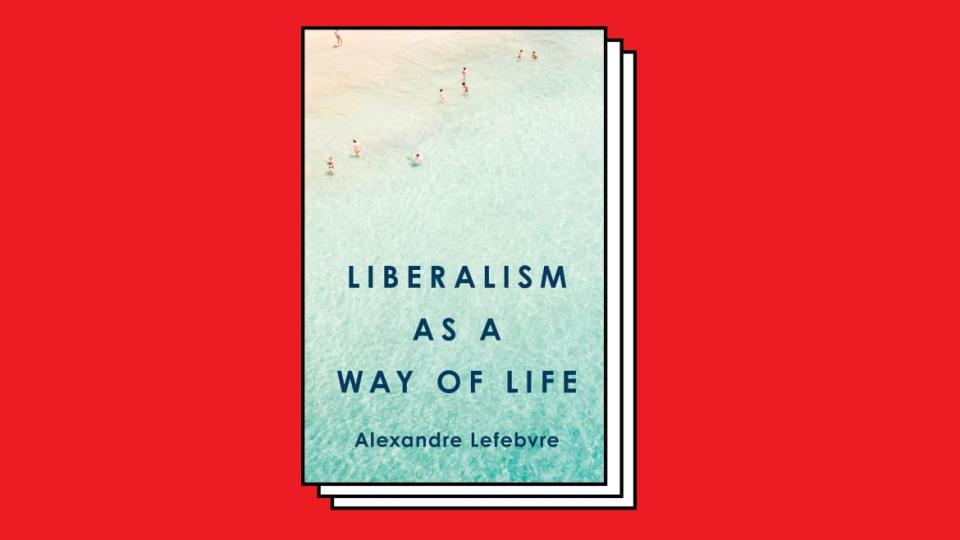Why Is Step-Incest Porn So Insanely Popular Right Now?

No one these days is going to be shocked that Pornhub.com is the 13th most visited website in the world. What may surprise you is that when sorted into all-time most viewed videos, whether in the United States or globally, one genre dominates. It is step-incest (or “fauxcest”), meaning sex between family members who are not biologically related, such as stepbrothers and stepsisters; stepsisters; stepsons and stepmothers; and stepfathers and stepdaughters (stepbrothers is also a popular genre on Pornhub’s gay videos). The count is not even close. As of January 2024, of the most popular 100 videos, 4.1 billion views were for step-incest videos and 3.3 billion views were for all other videos combined. Make no mistake, step-incest pornography is mainstream. It may even be majoritarian.
What on Earth can account for its popularity? Pornography, of course, trades on the breaking of taboos. Given how powerful and visceral the prohibition on incest is in just about every historic and contemporary society, it seems we don’t have to look far for an answer. It’s the incest, obviously. But that’s just the problem: if virtually every society, throughout all known human history, has forbidden incest, it doesn’t explain why this particular genre of porn is so popular now. If the incest taboo has always been around, why hasn’t incest (or incest-adjacent) porn always been mainstream and wildly popular?
Can the Disturbing Rise of Fake Incest Porn Be Stopped?
There must be a better explanation. Step-incest porn is indeed popular because it busts a taboo. But maybe the taboo in question is not (or at least, not primarily or only) incest. Step-incest porn, I believe, is popular because it violates one of the most cherished ideals of liberal democratic societies: merit and meritocracy, which is to say, the idea that power, prestige, and wealth should be vested in individuals strictly on the basis of their talent, effort, and achievement. When losers and frauds get laid—which is the bread and butter of these videos—a frisson runs through meritocracy to make the seemingly weird genre of step-incest the pornography of our times.
Let me explain. Meritocracy is a big fancy word but it’s something we all have daily and intimate experience of. Its premise is simple and powerful: as opposed to the olden days when social advantages were doled out according to whatever family or caste you belonged to, democratic societies, on paper at least, agree to confer benefits to those who deserve it. Want a high-paying job? Develop a socially useful talent. How about a spot at a top college? Be smart and work hard. True, critics have recently blasted meritocracy for entrenching all kinds of nasty inequalities and turning everyday life into a non-stop hamster wheel of CV building. Still, it’s hard to deny the intuitive appeal of meritocracy’s motto: You can make it if you try.
How does romance work in a meritocratic society? Even in an age of Tinder and Bumble, it doesn’t just spontaneously happen but takes place against a background of institutions and established expectations. For elites, that context is overwhelmingly college—sometimes as a site and stage of life, and more generally as intermarriage between graduates. By 2010 in the United States, 25 percent of couples were composed of two college graduates, which is an impressive figure given that only 30 percent of U.S. adults have college degrees. Economists, with typical sentimentalism, call this practice “assortative mating.” In the past, and still in many illiberal cultures, elite intermarriage was and is arranged. Today it is voluntary. Young meritocrats go on the hunt for their equal, someone worthy of their accomplishments and drive: a partner to love and like, in a spirit of friendship and shared adventure, provided, of course, that they pass the necessary background checks.

Which brings us to step-incest porn. Almost every video in the genre follows the same plot. First, partly for legal reasons and partly to remove the ick factor of real incest, there is an explicit declaration of nonbiological ties, such as “Stepbro, what are you doing home?” or “I can’t stay in the same hotel room as my stepson!” Second, this is key, prior to the sex, a few narrative minutes are always devoted to persuasion or coercion. Step-incest videos never start with both characters desiring one another as sexual partners. One of them always needs to be brought to that view: sometimes by seduction, and most often by blackmail, bribery, wheedling, pleading, or deceit. The methods are as various and sordid as the human imagination: to threaten to tell a secret or call the cops, pay off a loan, request sexual instruction, beg, impersonate, and much else. But all of them turn sex into an ill-gotten gain. The taboo being busted, in other words, is not the prohibition on incest. It is merit and the expectation that reward should track effort and achievement.
Step-incest porn is objectionable for many reasons—as wrong, creepy, or gross. For me, it is most of all sad. A moment ago we looked at elites who go to college, the go-getters of the meritocratic tournament. But what about the other side of the equation? What about those who weren’t educated by fancy institutions, fail to get a glossy job, don’t live in a glittery city, and above all, aren’t invited to the assortative mating party of attractive and accomplished singles? Meritocracy churns out losers just as surely and in much greater quantity than winners. And that inspires feelings of disappointment as well as humiliation and shame. As Michael Sandel states, “For those who can’t find work or make ends meet, it is hard to escape the demoralizing thought that their failure is their own doing, that they simply lack the talent and drive to succeed.”
Enter the antihero of step-incest porn. The same stock character, he is almost always white, bored, or bummed out, watching TV, playing video games, or on his phone. Along comes a female into his field of vision, and he leaves his stupor to cajole or compel. The attraction is not that she is related to him by ties of marriage. It is that she is there, in the same time and space, and he doesn’t have to go out into the world. He doesn’t love her; he doesn’t even like her. She’s simply something to do, a surface to cum on, and best of all, he doesn’t have to change out of his sweatpants.
In her book of the same title, Amia Srinivasan gives this attitude a name: a “right to sex,” a sense of entitlement by “someone who is convinced he is owed sex.” These someones are so-called incels: involuntarily celibate men who are enraged by women who deny what they think is their due. Technically, the antihero of a step-incest video is not an incel. He has sex. Yet he is impotent in a deeper sense: stuck at home, with little to recommend him professionally to society or personally to a mate, and he knows it. Say what you like about the plumber or cable repairman of yore, at least he was out there in the world. But the idea that this (pathetic, incelish) guy gets laid is titillating for losers and winners of the meritocratic game alike. For the losers, he short-circuits the logic of achievement and effort that holds them back (and rightly or wrongly, is felt to be rigged to begin with). For the winners, he represents a reprieve from the bullshit of the hamster wheel they run without respite. Step-incest porn has something for everyone.
It gets worse. Step-incest porn trades off a challenge not only to meritocracy but also to the ideals of liberal democracy. Today the issue of consent, for better and worse, has moved to the heart of the public debate about sex. Sex-positive liberals, out of respect for privacy and aversion to moralism, have by and large concluded that a lack of consent is the only ground on which to judge and regulate. But as Srinivasan observes, “When we see consent as the sole constraint on ethically OK sex, we are pushed towards a naturalisation of sexual preference in which the rape fantasy becomes a primordial rather than a political fact.”
This is exactly what happens in step-incest videos. Searches on Pornhub for such overt terms as rape, force, violence, violate, or assault return no results. Softer forms of coercion, however, are fair game: bribe, convince, reluctant, talk into, trick, and so on. All of these are based on bringing an initially unwilling partner to a state of consent, or preferably for this genre, not non-consent. Within the mainstream, much more so than any kind of bondage-type videos, this is as near to non-consensual pornography as you can get. And to repeat, it is the most popular genre by a mile. Yet is that surprising? When we look at the genre and what it does, most viewers are probably not actually hot for mommy, daddy, sister, and brother. Much more plausible is that we get off by seeing the ethical consensuses of our liberal democratic age—about reward and effort, love and friendship, consent and desire—either openly abrogated or brought into a gray zone of negotiation and thrill. To adapt a phrase from an arch-conservative political philosopher, every nation gets the porn it deserves.
Adapted from Liberalism as a Way of Life, which will be published June 4 by Princeton University Press.
Alexandre Lefebvre is the author of Liberalism as a Way of Life. He is a professor of politics and philosophy at the University of Sydney. His books also include Human Rights as a Way of Life.
Get the Daily Beast's biggest scoops and scandals delivered right to your inbox. Sign up now.
Stay informed and gain unlimited access to the Daily Beast's unmatched reporting. Subscribe now.


